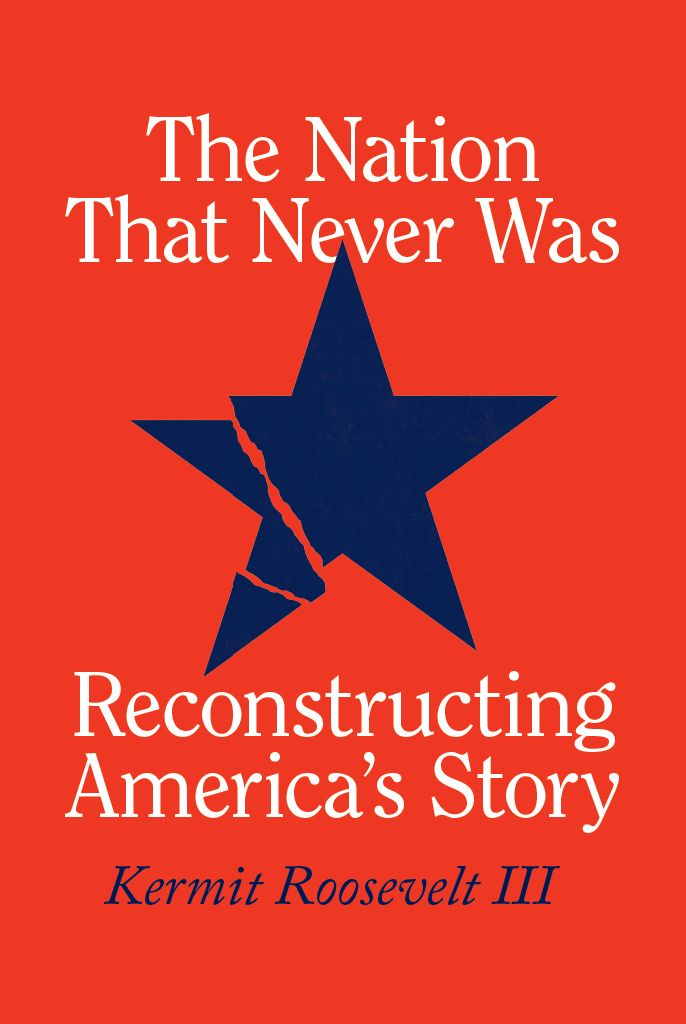
The Nation That Never Was
The Nation That Never Was
Reconstructing Americas Story
Kermit Roosevelt III
The University of Chicago Press
Chicago
The University of Chicago Press, Chicago 60637
2022 by The University of Chicago
All rights reserved. No part of this book may be used or reproduced in any manner whatsoever without written permission, except in the case of brief quotations in critical articles and reviews. For more information, contact the University of Chicago Press, 1427 E. 60th St., Chicago, IL 60637.
Published 2022
Printed in the United States of America
31 30 29 28 27 26 25 24 23 22 1 2 3 4 5
ISBN-13: 978-0-226-81761-3 (cloth)
ISBN-13: 978-0-226-81762-0 (e-book)
DOI: https://doi.org/10.7208/chicago/9780226817620.001.0001
Library of Congress Cataloging-in-Publication Data
Names: Roosevelt, Kermit, 1971 author.
Title: The nation that never was : reconstructing Americas story / Kermit Roosevelt III.
Description: Chicago : The University of Chicago Press, 2022. | Includes bibliographical references.
Identifiers: LCCN 2021046120 | ISBN 9780226817613 (cloth) | ISBN 9780226817620 (ebook)
Subjects: LCSH : United States. Declaration of Independence. | Constitutional historyUnited States. | SlaveryUnited States. | EqualityUnited States.
Classification: LCC KF 4541 . R 66 2022 | DDC 342.7302/9dc23
LC record available at https://lccn.loc.gov/2021046120
 This paper meets the requirements of ANSI / NISO Z39.48-1992 (Permanence of Paper).
This paper meets the requirements of ANSI / NISO Z39.48-1992 (Permanence of Paper).
Contents
In 2014 Philadelphia cheered as thirteen-year-old Mone Davis, the first girl in Little League World Series history to pitch a winning game, took the Taney Dragons to the semifinals. Her story embodied everything America likes to believe about itself: here was the barrier-shattering underdog, leading an underfunded urban team, proving that for those with enough talent and drive, anything is possible.
And yet...
The Taney Dragons took their name from Taney Street, which runs to their home field by the Schuylkill River. Everyone pronounced the teams name Tay-nee, but that isnt right. Law students learn in their first year that its actually Taw-nee. They learn that because its the name of Roger Brooke Taney, fifth chief justice of the United States Supreme Court. Taney was the author of the Dred Scott decision, where he had something different to say about Mone Davis and her fellow Black Americans. He said they had no rights that the white man was bound to respect, that they could never be citizens of the United States. Mone Davis took the mound with that mans name written across her back.
The connection wasnt well known in 2014, and when it surfaced, some said the success of the Dragons redeemed the name. It means something else, a column in Hidden City Philadelphia proclaimed. Taney is a word that has taken on its own meaning, a word thats become a symbol of hope. In October, they announced a new name: the Philadelphia Dragons. Was that the right choice? It was not our faultnot the fault of anyone now livingthat Taney Street was named for Roger Taney. The name came to Philadelphia in 1858, one year after the Dred Scott decision. But it was our decision what to do about it now. Either keep the name and try to understand it in its best lightas something changed, as something now bearing a positive messageor make a break with the past and start over.
The same decision is playing out across the country, with monuments and statues (often those erected to honor the Confederacy), with buildings and schools. And something very similar plays out with American history more broadly. Repeatedly, Americans have faced the choice between maintaining and rejecting a connection with the past, between putting it in its best light as a way to move forward and burning it all down to start over. Neither answer is necessarily correct; neither will be the right choice in every circumstance. But theres one scenario that might always be wrong: What if you burned it all down and started over... and then pretended that you hadnt? What if you insisted on locating your ideals and your identity in an old order that you had already rejectedthat, in fact, you had overthrown and destroyed by force? That should seem deeply odd. Yet this is what we do with the most fundamental question of American identity. We tell ourselves a story that links us to a past political regimeFounding America, the America of the Declaration of Independence and the Founders Constitutionto which we are not the heirs. We are more properly the heirs of the people who destroyed that regime.
Why do we do this? Stories of national identity exist to fulfill a particular set of purposes: to bring people together in the name of shared ideals. The story that tells us we are the heirs of Founding Americawhat I call the standard storyonce seemed like a good way to do this. But it is not, and it never was. When the standard story flourished, it encouraged a complacency that prevented progress toward its stated ideal. It allowed many of us to believe things about ourselves that arent true. Once it came under attack, that standard story lost some of its power to unify and became a subject of profound disagreement instead. Less obviously, but more seriously, as we pushed forward a more accurate account, the standard story increasingly undermined itself. Whether people realized it or not, a story that was supposed to promote inclusive equality instead fed exclusive individualism.
By inclusive equality, I mean, generally, this belief: Our political community is open. Those who are now outsiders are fundamentally similar to us and may become insiders. Political outcomes are legitimate if they are the product of an open and fair democratic process. Government can and should act to promote equality. By exclusive individualism, I mean more or less the opposite: Our political community is closed. Outsiders are different and dangerous. Political outcomes are legitimate if they protect the rights and interests of insiders. Government has no business promoting equality and should not redistribute, especially not to outsiders. The contest between these two visions is shaking the nation todaybut understanding how we got to this point will take most of this book to explain. Most of the book concerns different stories of America. I will criticize the standard story on several grounds and offer different versions of it that highlight its flaws. And I will propose an alternative. The standard story ties us to a problematic past, but we can escape that trap. We can cut the cord that linked Mone Davis and Roger Taneynot by simply renaming a street, but by changing our understanding of who we are and where we come from.
The way we think about American history nowas a continual unfolding and realization of the principles enunciated in the Declaration of Independenceholds us back. Yet maybe that is not the right way to think about America. Maybe our relationship to the Declaration is different. Maybe our origins are not what we have been taught.
I came to the ideas in this book in the same manner as Hemingway described going bankrupt: gradually, and then suddenly. Gradually because as I taught constitutional law at the University of Pennsylvania over the past eighteen years, I encountered different areas of the subject that made little sense. Some of them were hot, newsy topics: the Supreme Courts treatment of affirmative action, for instance, or its invalidation of a key part of the Voting Rights Act. Some of them were relatively obscure: cases from the nineteenth century about interstate conveyances or the state action doctrine. But all of these peculiarities, I came to see, turned out to have a common root. They were all situations defined by aspects of constitutional doctrine that were helping to maintain racial hierarchy.
Next page
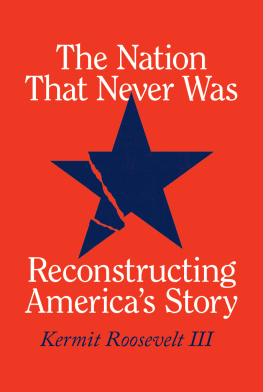

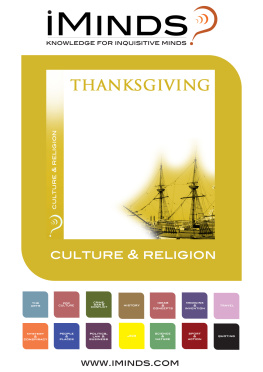
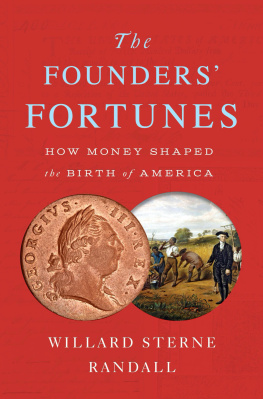
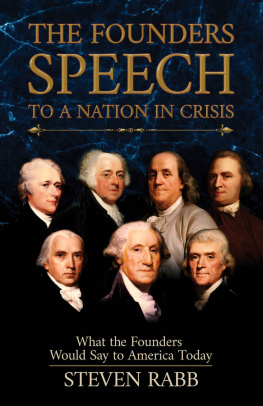
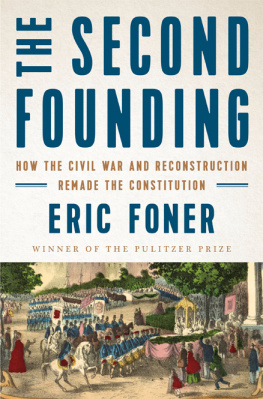

 This paper meets the requirements of ANSI / NISO Z39.48-1992 (Permanence of Paper).
This paper meets the requirements of ANSI / NISO Z39.48-1992 (Permanence of Paper).